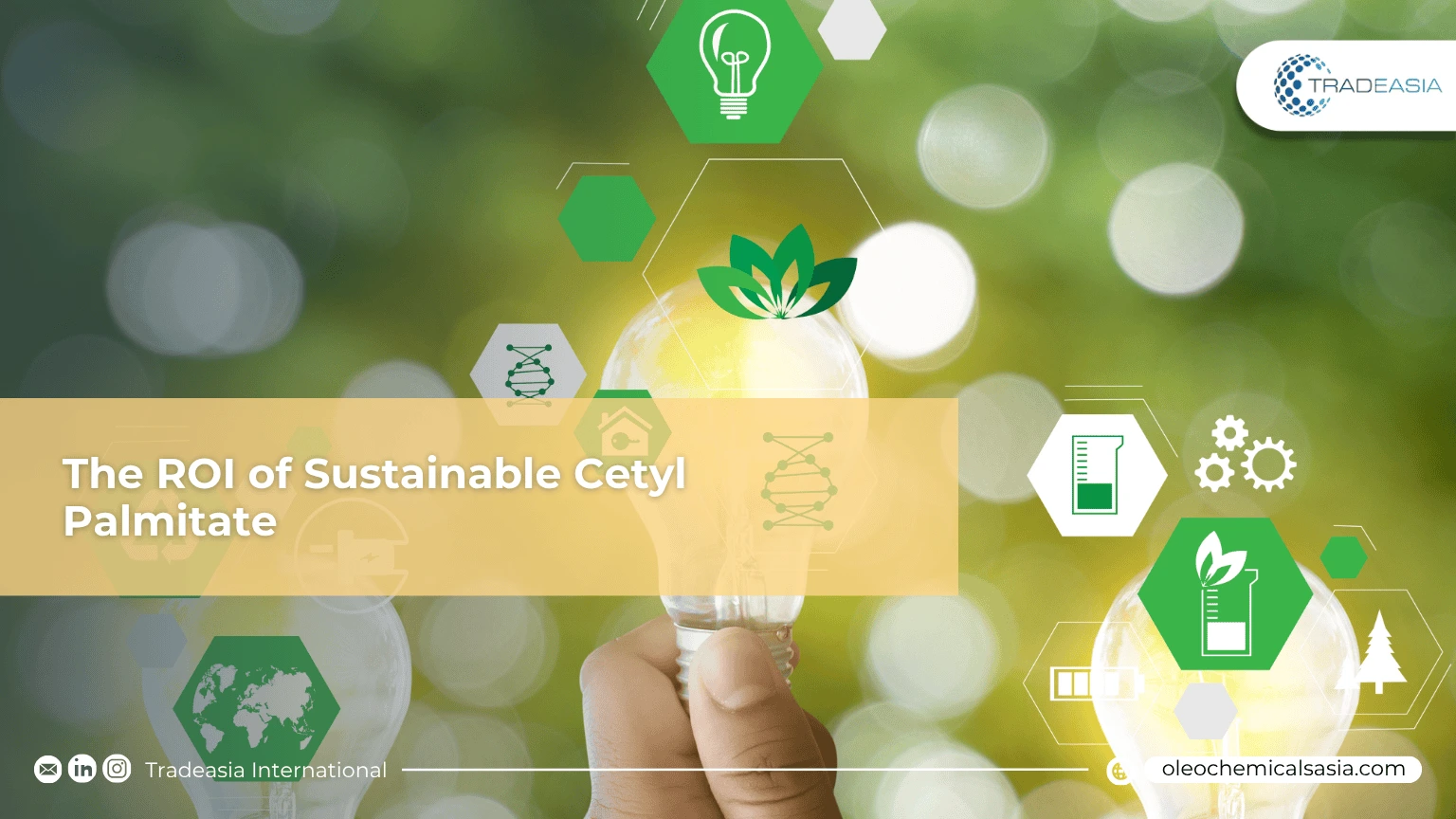Market Insight
05 October 2025
The Green Premium: Unlocking the ROI of Sustainable Cetyl Palmitate Sourcing
Oleochemicals

Table of Content
- The Price of Progress: A Clear Return
- From Niche Supply to Mainstream Strategy
Market Insight
05 October 2025
Oleochemicals

In the competitive personal care market of 2025, sustainability is no longer just a corporate responsibility checkbox; it has matured into a sophisticated business strategy with a clearly defined return on investment. For producers of cetyl palmitate, analyzing the "green premium" on certified raw materials like RSPO Mass Balance (MB) palmitic acid is revealing a powerful formula for long-term growth and brand loyalty.
Understanding the true value of this premium requires a partner who can bridge the gap between sustainable sourcing and tangible market demand. Tradeasia International helps facilitate this connection, empowering our clients to transform certification into a competitive advantage. We firmly believe that “today’s sustainable choice is tomorrow's market share,” a principle that guides our commitment to building resilient and responsible supply chains.
The numbers tell a compelling story. As of October 2025, the price premium for RSPO MB certified palmitic acid is holding at a stable $80 per metric ton over conventional grades. For a firm procuring 2,000 tons annually, this represents a direct investment of $160,000. However, this cost is being rapidly offset by consumer behavior. A recent NielsenIQ report highlights that 71% of Millennial and Gen Z consumers in key European markets will actively pay a 5-10% product premium for cosmetics with verified sustainable ingredients. This creates a direct pathway for brands to recoup their investment and enhance profitability.
This consumer demand is fueling real market shifts. Brands that have fully embraced certified sustainable supply chains are reporting sales growth 6% higher than their category competitors over the past year. Crucially, the supply side is keeping pace. The global availability of RSPO-certified palmitic acid and cetyl alcohol has surged by 22% year-over-year, according to Oleochemicals Asia and the RSPO. With a projected 1.5 million metric tons available in Q4, the certified supply can now meet nearly 50% of the global demand for these oleochemicals in the personal care sector, solidifying sustainable sourcing as a viable, mainstream strategy for success.
Sources:
Roundtable on Sustainable Palm Oil (RSPO): Q3 2025 Impact Report
NielsenIQ: Consumer Insights: The Sustainability Premium in Personal Care
Oleochemicals Asia: Market Watch: Certified Sustainable Oleochemicals
We're committed to your privacy. Tradeasia uses the information you provide to us to contact you about our relevant content, products, and services. For more information, check out our privacy policy.
Leave a Comment